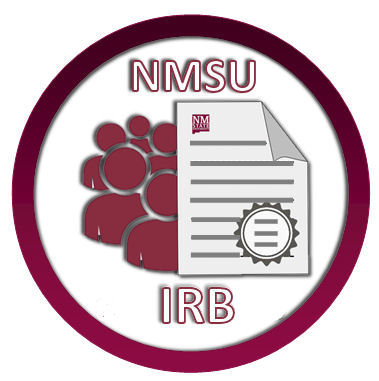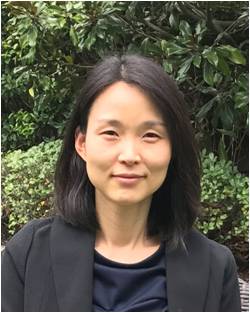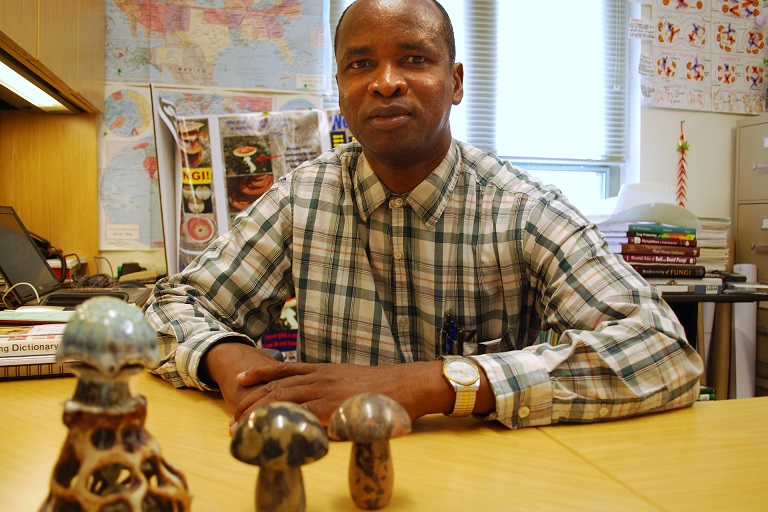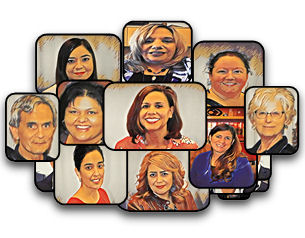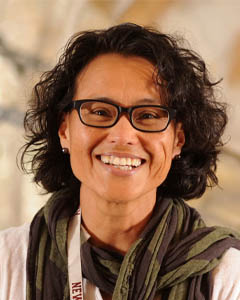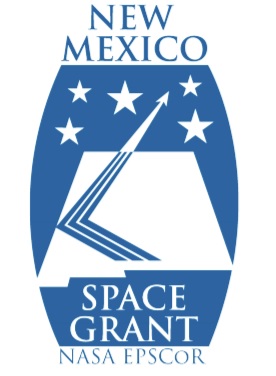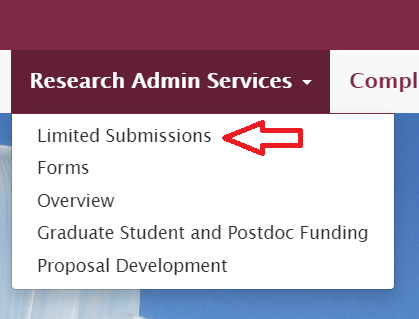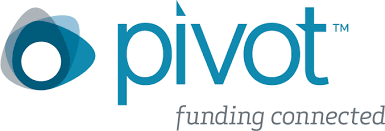 |
|
NMSU Institutional Review Board UpdateBy Michelle Gavin, Research Compliance Coordinator, RIC
The NMSU Institutional Review Board (IRB) and the Office of Research Integrity and Compliance (RIC) welcome NMSU faculty, staff, and students to Spring 2021. The IRB Committee and RIC staff are excited about all the great research that takes place at NMSU. It's been an eventful and challenging time but the IRB continues to support the research community while ensuring the protection of human subject participants. We are here to help researchers comply with federal, state, and institutional regulations to ensure safety and projection of human subjects involved in research!
Here are some resources to help you with the IRB process and in using the Maestro Review System:
If you have questions or need assistance, the IRB and the compliance office staff are here to help. Recently, we have incorporated Zoom meetings with researchers to help answer questions and discuss their specific research projects and how to ensure protection of human subject participants. We invite you to Zoom with us! If you need help, call us at (575) 646-7177 or send an email to ovpr@nmsu.edu.
|
|
Partnership for Advancement of Cancer Research Accepts ProposalsBy Helena (Lené) Loest, Senior Program Manager, PACR
The Partnership for the Advancement of Cancer Research (PACR), a collaboration between NMSU and the Fred Hutchinson Cancer Research Center, funded by the National Cancer Institute, is requesting proposals for pilot and full project funding.
Pilot projects provide funding (up to $120,000/year direct costs shared between institutions) and full projects provide funding (up to $275,000/year in direct costs shared between institutions) for the period of September 1, 2021 through August 31, 2023. New partnerships are encouraged to apply for pilot projects.
Successful full proposals are teams of NMSU and Fred Hutch investigators that show potential to develop their research collaborations into NIH R21 or R01 grants. Pilot proposals will be accepted for projects that have potential to develop into full projects or small NIH grants. Applicants must be current NMSU and Fred Hutch faculty members in positions required to conduct independent research.
To apply, visit https://redcap.link/PACR_RFA. Letters of ontent are due by 6 p.m. MT on April 1, 2021. Research Plans are due by 6 p.m. MT on June 1, 2021.
If you have questions, please send email to hloest@nmsu.edu or call (575) 646-5104. You can also contact Marilyn Drennan at mdrennan@fredhutch.org, or reach her at (206)667-4226. |
PARTNERSHIP FOR |
Meet Dr. Doeun Choe, Assistant Professor of Civil Engineering at NMSU
By Hamid Mansouri Rad, Senior Proposal Development Specialist, RAS
We are pleased to welcome Dr. Doeun Choe, who recently joined NMSU’s Department of Civil Engineering. Dr. Choe joins us from Prairie View A&M University where she was an Assistant Professor for seven years conducting research on data-informed modeling including Probabilistic Modeling, Reliability and Uncertainty Quantification as well as Machine Learning in bridge design and offshore wind turbines. Prior to that, she worked for five years as a structural engineer in the industry in Houston, Texas where she was engaged in structural analyses and design of blast-resistant buildings, nuclear plants, and other structures.
Question: Welcome to NMSU Dr. Choe! What courses are you teaching this semester?
Thank you! I’m excited to be here. I have no teaching assignment in this semester, but my favorite undergraduate course to teach is Steel Design. My favorite graduate course is Applied Data Science in Civil Engineering (I: Machine Learning & II: Deep Learning).
Question: What are your career plans at NMSU?
My short-term goal is to establish new theories in Structural Engineering that have lately been enabled due to the recent application of artificial intelligence (AI), machine learning/deep learning. This includes merging some of AI techniques into the existing structural engineering theories mathematically and computationally.
My long-term plan is to advance knowledge and educate students in uncertainty, risk, and reliability within the human-built environments and enhance the resilience of structures such as buildings, bridges, and other facilities that support human’s basic and critical needs. These include the improvement of the structural safety subject to natural and man-made hazards as well as the aging of the structures. I would like to make NMSU’s Civil Engineering program a nationally recognized program at the forefront of AI in Civil Engineering. Students graduating from this program should be known as engineers strong in the data science and future technology.
Question: Does your research lend itself to collaboration with researchers in other disciplines? If so, which disciplines? Computer Science? Physics? Others?
All of them. My immediate collaborators would be from Mechanical Engineering, Civil Engineering (I will be helpful to them), and Computer Science (They are going to be helpful to me). However, researchers from any engineering discipline dealing with uncertainties in systems, having large data accumulated but unused or don’t know what to do with them would be great candidates. I always look for data. I can do many things if there are data, the larger the better.
Question: What about social sciences?
Yes, and I am always looking for social scientists interested in the collaborating with engineers. My brain performs the best when the research contributes to solving social issues. In addition to structural damage, natural/man-made threats always have social implications. These hazards include earthquakes, hurricanes, and terrorist acts, among others. Social impact is sometimes measured in terms of cost, which includes cost from the structural damage. I’m interested in incorporating measures to reduce social impact in the design of structures to protect "people," not just reduce structural damage as a cost cutting measure. This certainly requires collaborations with social science.
Dr. Choe received her Ph.D. in 2007 in Civil Engineering from Texas A&M University where she wrote her dissertation on Seismic Fragility Estimates of Deteriorating RC bridges. She also earned a B.S. and an M.S. in Architectural Engineering with an emphasis on Structural Engineering from Inha University, South Korea.
She is currently serving as a member of multiple ASCE (American Society of Civil Engineers) technical committees including Structural Fire Protection and Life-Cycle Performance, Safety, Reliability and Risk of Structural Systems. She is also a STEM NOVA mentor of Boy Scouts of America and has served as a Lego Robotics Group coach and a catechist at Christ the Redeemer Catholic Church.
Dr. Choe can be reached at dchoe@nmsu.edu. |
of Civil Engineering, NMSU |
Faculty Shout-out: Dr. Soum Sanogo
By Hamid Mansouri Rad, Senior Proposal Development Specialist, RAS
We would like to acknowledge Dr. Soum Sanogo's excellent performance on his research proposal development. Dr. Sanogo is a Professor of Fungal Plant Pathology in the Department of Environmental, Plant Pathology and Weed Science. "He provides all of his proposal paperwork early and is open to questions or revisions to his budget and budget justification," says Ms. Misty Haynes, Senior Program Manager in the College of Agricultural Consumer and Environmental Sciences. “Dr. Sanogo is accessible during the proposal submission process in the event we run into any issues,” also comments Ms. Rita Parra, Director of Pre-Award Administration within the Office of the Vice President for Research and Dean of Graduate School.
We at RAS submit in excess of 700 proposals a year and urge our principal investigators (PIs) to provide us with their proposals five working days before the agency deadlines in order to give us sufficient time for review and assist PIs to make the necessary revisions if needed.
Dr. Sanogo joined NMSU in 2002. His research foci on soilborne diseases include etiology and ecology/epidemiology of soilborne pathogens; soil amendments with biorational products, green manures, and crop residues for disease control; disease resistance and pathogen race characterization; pathogen nutrition and physiology; and pathogenic interactions.
Dr. Sanogo can be reached at ssanogo@nmsu.edu. |
Fungal Plant Pathology, NMSU |
Save the Date: Research Administration Roundtable: February 17, 2021By Rita Parra, Director of Pre-Award Administration , RAS
The Offices of Research Administration Services and Research Integrity and Compliance will hold their quarterly roundtable discussion for pre-award research administrators and other support staff from throughout the NMSU system on February 17 at 11:00am via Zoom. Regular communication and collaboration are the primary goals for these roundtables, as we collectively continue the mission of NMSU LEADS 2025. |
|
PI Academy Training on Tuesday February 9By Cindy Ramirez, Proposal Development Specialist, RAS
The Principal Investigator (PI) Academy will host a webinar on Tuesday February 9 from 10 from 2:00pm to 3:00pm.
The webinar will be offered by Dr. Graciela Unguez, professor of Biology and lead program director for NMSU’s Partnership for the Advancement of Cancer Research. Dr. Unguez has served on many grant review panels and will bring insight into the grant review process. While the primary audience of this webinar is PI Academy members, the webinar is open to all faculty and researchers interested in obtaining crucial information and research compliance issues.
To register for this webinar, please send email to cindyram@nmsu.edu. |
|
New Mexico Space Grant Consortium Accepts Scholarship and Fellowship ApplicationsBy Cristina Esquivel, Program Specialist, NMSGC
New Mexico Space Grant Consortium (NMSGC) just opened the application period for scholarships and fellowships for the Fall 2021 and Spring 2022 semesters. The application period will be open until April 5, 2021.
NMSGC offers scholarships and fellowships to students enrolled in any community college or university in New Mexico. Applicants must be U.S. citizens and be majoring in a STEM field, with exception of the Education Major and In-Service Teacher Scholarship.
The Fall 2021 – Spring 2022 Scholarships and Fellowships offered are:
For more information and to apply go to www.nmspacegrant.com For questions, send email to cmesquiv@nmsu.edu or call (575) 646-6414. |
|
Limited Submission List Moved to SharePointBy Hamid Mansouri Rad, Senior Proposal Development Specialist, RAS
Research Administration Services maintains a list of limited submission funding opportunities for NMSU research community. The list is accessible through a link on the Research website, under the Research Administration tab. NMSU users can also access the list directly on SharePoint at https://eltnmsu.sharepoint.com/sites/ResearchCreativity/SitePages/Limited-Submissions.aspx. We encourage NMSU researchers to periodically visit the site and if they are interested in any of the opportunities to please inform us by sending email to ras@nmsu.edu.
|
|
NSF EPSCoR RII Track 4's New Track, Limited SubmissionBy Hamid Mansouri Rad, Senior Proposal Development Specialist, RAS
This is a reminder that solicitation 21-557 for the NSF Established Program to Stimulate Competitive Research (EPSCoR) RII Track 4 includes a new track titled Fellows Advancing Science and Technology (FAST). According to the solicitation, while this track is similar to the regular RII Track 4 in achieving the same goals, RII Track-4:FAST focuses on faculty from eligible institutions to collaborate with researchers at NASA participating research centers.
Since NSF EPSCoR RII Track 4 is a limited submission, we have been keeping track of this opportunity and are already in the process of determining the NMSU applicants for the regular RII Track 4 based on NSF's previous solicitation (20-543). We updated our limited submissions list as soon as the new solicitation (21-557) was released. Those interested in the FAST category, should send email to ras@nmsu.edu by 5:00pm on February 12, since the new solicitation limits us to submit only 6 proposals in this category. Please note that PIs who are eligible for both tracks may apply for only one track per competition cycle. The deadline to submit NSF EPSCoR RII Track 4 is April 26.
For more information, please send email to hamid@nmsu.edu. |
|
Pivot Funding Opportunity Database
This is a reminder that in order to assist NMSU faculty and staff in locating external funding opportunities, the OVPRGS has purchased a subscription to ProQuest’s Pivot software available at https://pivot.proquest.com/session/login.
To request a one-on-one or group Pivot training, send email to hamid@nmsu.edu. |
|
Graduate School |
|
Remote Mentoring: Common Communications for Uncommon TimesBy Luis A. Vazquez, Regents Professor and Associate Vice President for Research and Graduate Studies
|
|
Need Guidance on Securing External Funding? Contact Me!
If you are an NMSU graduate student or post-doctoral scholar needing guidance on securing external funding, please contact me at fee@nmsu.edu. Please also visit the list of current funding opportunities that I maintain on the research website and let me know if you have any questions.
Chong-Hwey Fee
|
Proposal Development Special Specialist, RAS |
|
Questions and comments regarding NMSU’s Research and Graduate School Digest should be directed to Hamid Mansouri Rad, Ph.D. at hamid@nmsu.edu, (575) 646-6429. |
|
